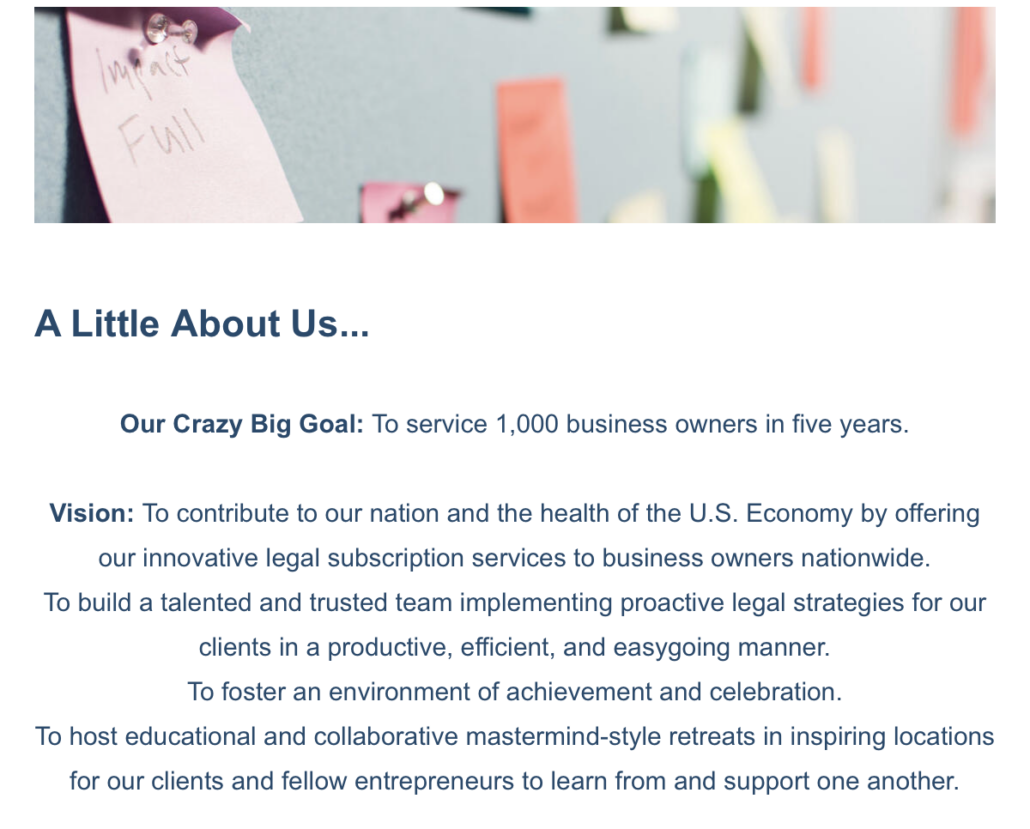Intellectual property is the lifeblood of many businesses, and this is especially true for content creators. Professionals such as coaches, consultants, strategists, leadership trainers, authors, and bloggers rely on their creative works to drive their business and set it apart from competition. They work diligently to create original content that provides exceptional value, enhances their service offerings, and ultimately grows their business.
Such professionals excel at researching and creating unique content that makes their brand and services stand out from the competition. Content creators put in long hours to perfect their materials and gain competitive advantages in their market. In fact, the value of their intellectual property can far exceed any physical assets and often accounts for more than half of their business’s value.
And yet this painstaking labor goes to waste when their inspired content is left legally unprotected. Content creators risk their creative works being copied and freely used by other businesses for profitable purposes. By filing and securing the necessary copyrights, trademarks, or trade secrets, content creators unlock valuable opportunities to generate revenue from their content, expand their audience, and protect their business to grow securely into the future.
What intellectual property do I have and how can I protect it?
Every business possesses valuable intellectual property, whether the business owner realizes it or not. Content creators’ intellectual property can include: training programs, webinars, online courses, workshops, blogs, articles, how-to guides, eBooks, manuals, and other educational materials or creative works. A copyright would give the content creator control of any reproductions, adaptations, or translations.
Another form of intellectual property content creators possess are slogans, logos, designs, phrases, symbols, or brand names associated with their business. Trademarks specifically protect branding materials to ensure businesses can remain distinct from competition within the same industry.
Trade secrets are another type of intellectual property content creators may possess. A trade secret is any valuable information that gives a business a competitive advantage. Examples of trade secrets include recipes, formulas, client lists, business processes, proprietary algorithms & calculations, apps, internal documents & worksheets, and affiliate programs that give the business a distinct advantage. In order for intellectual property to be considered a trade secret, businesses must make a reasonable effort to actively secure the information internally and externally – i.e. they have to try to keep it a secret.
How can I leverage my intellectual property with copyrights, trademarks, and trade secrets?
At the most basic level, protecting intellectual property with copyrights, trademarks, and trade secrets improves your competitive advantage and keeps your content unique. But more importantly, copyrights, trademarks, and trade secrets open the door to new profit-making enterprises that grow your business.
Copyrights, trademarks, and trade secrets transform your content for commercial use. Just like any other form of property, once you secure the rights to your content, you can sell, transfer, or license it to others. Through licensing, content creators can negotiate a profitable royalty either as a percentage of the income the client generates from the content or as a fixed fee. As a result, content creators build a reliable passive income that grows and sustains their business long-term.
Licensing copyrighted works, trademarked brand materials, or part of a trade secret effectively monetizes content, but it also functions as a valuable marketing tool. By distributing original content to others, businesses expand their reach, gain new audiences, drive new traffic, gather leads, and convert sales. Neglecting to copyright, trademark, or establish a trade secret for your original brand materials and content can result in: the loss of a new revenue source and new avenue for growth, the devaluation of the content when competitors freely copy and distribute it, and the major loss of potential profits.
Case Study: The John Maxwell Company
The John Maxwell Company is a corporate leadership training service that offers extensive solutions, including: leadership workshops, executive coaching, training, assessments, and keynote speaking. They also engage their online audience with their blogs, podcasts, and webinars. The John Maxwell Company has registered at least 18 trademarks and likely hundreds (if not thousands) of copyrights to protect and leverage these products and services.
As a result, they form profitable partnerships with other companies, in which other business will represent and sell their training programs. The company that sells their program benefits from the high-quality content while The John Maxwell Company sells more of their product and services long after the content was created. This company is a great example of how content creators can make their content work for them full-time through copyrights, trademarks, and trade secrets.
Final Thoughts
Filing and maintaining copyrights and trademarks and forming trade secrets are effective, long-term investments for content-related businesses’ success and growth. It sustains, transforms, and advances the business and its services to new heights. If you have worked hard to create your content, give it the protection and importance it deserves to maximize its value within your business.
Next Steps
If you’re interested in how protecting your intellectual property can benefit your business or discussing any of these topics further, set up a 20-minute meeting with Peyton Law to discuss your business’s needs and to find the best options for your business’s success. Please call or text 484-801-0021 or reach out to Cassandra Ortner at cassandra.ortner@peytonlaw.com. We proudly support the nation’s business owners.
*Janelle Peyton is the CEO and Managing Partner of Peyton Law, a leading boutique law firm designed to provide the highest quality branding, business, and legal services to companies via quarterly subscription called Strategic Legal Solution. Peyton Law offers brand building strategies through corporate and intellectual property law, including business entity formation, buy+sell, contracts, joint ventures, trademarks, patents, licensing, and other growth-related transactions.






Leave a Reply
Want to join the discussion?Feel free to contribute!